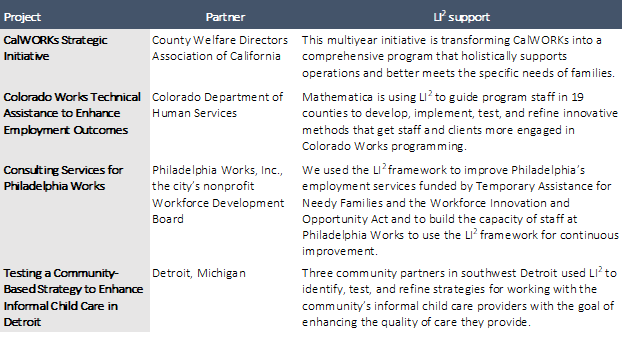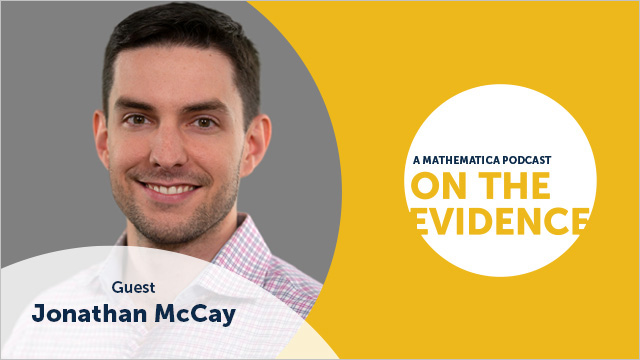A growing number of public service agencies throughout the country are using data and evidence to improve programs for residents living in poverty. But state and local governments face challenges, such as complex regulatory environments, limited fiscal and staff resources, and shifting political environments, which can undermine sustainable change. Mathematica is working with human services and workforce agencies in Colorado, Massachusetts, Michigan, Vermont, and Pennsylvania, among others, to introduce a change management framework known as Learn, Innovate, Improve (LI2). Through this work, we partner with agency leaders to streamline operations and improve practices. Developed in partnership with the federal Administration for Children and Families and Harvard University’s Center on the Developing Child, Mathematica’s LI2 applies a human-centered design approach to deeply understanding and solving the needs of human services organizations. Our framework is firmly anchored in the science of human behavior, adult learning principles, and research evidence.
LI2 streamlines operations and improves practices across the country
In the Learn stage of LI2, we collaborate with our state partners to examine a specific need for program improvement and assess the program’s readiness for change. During the Innovate stage, we work closely with program staff who help us design promising interventions. During the Improve stage, we test these interventions through small-scale analytic piloting and other research methods. The process is deliberately designed to be highly collaborative, drawing upon the expertise and on-the-ground knowledge of staff who run the programs. In Adams County, Colorado, for example, we’re using an evidence-based process of learning and experimentation to increase participation in mandated work activities (listen to the podcast). Other examples include the following:

Discover more about how state agencies implement LI2 to improve programs and outcomes by contacting Mathematica’s Michelle Derr, Annalisa Mastri, and Jonathan McCay, or download these resources:
- Learn, Innovate, Improve (LI²): Enhancing Programs and Improving Lives is a practice brief describing the LI2 process.
- Learn, Innovate, Improve (LI²): Lessons from the Colorado Works Innovation Initiative is a case study brief that describes how LI2 facilitated innovation through work with Temporary Assistance for Needy Families programs in Colorado.
- The Learn Phase: Creating Sustainable Change in Human Services Programs is a practice brief that provides an overview of the Learn phase of LI2, which is intended to lay the foundation for successful and sustainable program changes.
- Using a “Road Test” to Improve Human Services Programs: Practice Brief, Primer, and Webinar provide detailed guidance about road testing (a component of the Improve stage).
ABOUT US: Mathematica applies expertise at the intersection of data, methods, policy, and practice to improve well-being around the world. We collaborate closely with public- and private-sector partners to translate big questions into deep insights that improve programs, refine strategies, and enhance understanding.

